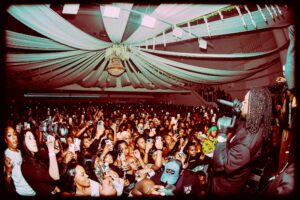Anglicans go reggae
THE Anglican church in Jamaica will include the lyrics of songs rendered by two of the country’s most famed reggae artistes – Bob Marley and Peter Tosh – in the next publication of its church hymnal due by the end of the year.
Rector of the Church of St Mary the Virgin, Rev Canon Ernle Gordon, made the announcement yesterday at the 2007 Michael Manley awards function for community self-reliance at the Little Theatre in Kingston.
Gordon, speaking with the Observer after the awards, said the songs will be Tosh’s version of Psalm 27 and Marley’s internationally acclaimed One Love, but he said the use of reggae rhythms in the Anglican Church was nothing new.
“We’ve been having reggae and mento masses for 25 years,” he said, noting that One Love was used in an ordination service at the St Andrew Parish Church two years ago.
The reason behind incorporating what is generally referred to in Christendom as secular music into the church book of hymns, said Rev Gordon, was the need to establish a Caribbean interpretation of theology.
“I don’t live in England; I live here, so my theology and how I think must reflect my cultural morals. The theology has to be Caribbean-oriented. You have to interpret the Bible according to where you are,” he said. “The church in Jamaica is out of date,” he added.
At the same time, Gordon said the use of the reggae rhythms was not secular, since Anglican theology does not separate the sacred and the secular.
However, the rector made it clear that the emerging genre referred to as reggae gospel was different from what the Anglican church was doing. The difference, he said, boiled down to the words that are used in each case.
“We make it clear that the words we use are correct theology and that they are catholic theology. We even have the Lord’s prayer in mento. (but) whether we use ancient words or not, we make certain that the words relate to the Bible and to our own Anglican interpretation of it,” said Gordon.
Gordon said, too, that unlike many of the proponents of gospel reggae, the Anglican church does not use music for entertainment, but as an offering to God.
“We move our bodies to the songs because we are beings of spirit,” he said. At the same time, he blamed the interpretation of the Bible to which the majority of the Christian world now subscribes for much of the divergent beliefs that exist among the various denominations in Jamaica.
“We have to pick from the Bible and relate it to society. We have to do more expository preaching where we teach and educate the congregation,” said Gordon.












